Article Income

How can I maximize my retirement income from pension plans ?
The article provides strategies for maximizing retirement income from pension plans, including understanding the types of plans, optimizing contributions, investing wisely, taking advantage of tax benefits, and planning for retirement expenses. It emphasizes the importance of starting early, diversifying investments, and regularly monitoring and adjusting them. The article also highlights the benefits of tax-deferred growth and potential tax-free withdrawals. By following these strategies, individuals can help ensure a comfortable retirement with a steady stream of income from their pension plans.

What are the deductions and exemptions in personal income tax calculation ?
Deductions and exemptions in personal income tax calculation include standard deduction, itemized deductions, tax credits, and exemptions. Standard deduction is a fixed amount subtracted from an individual's taxable income, while itemized deductions are for specific expenses not covered by the standard deduction. Tax credits directly reduce the amount of taxes owed, and exemptions are amounts subtracted from an individual's taxable income to reduce their tax liability. Understanding these deductions and exemptions can help taxpayers minimize their tax liability and keep more of their hard-earned income.

How can I minimize my personal income tax liability ?
The article discusses strategies for minimizing personal income tax liability, including maximizing retirement contributions, taking advantage of tax credits and deductions, considering tax-efficient investment strategies, deferring income when possible, and managing withholdings. It emphasizes the importance of careful planning and consulting with professionals to reduce one's tax burden.

How often do I need to file my personal income tax return ?
Filing personal income tax returns is a crucial financial responsibility for individuals. The frequency of filing depends on various factors such as your residency, employment status, and income level. In this article, we will discuss the different scenarios that determine how often you need to file your personal income tax return. Personal income tax returns are filed annually in most countries. However, there are certain situations where you may need to file more frequently or less frequently. Your residency status plays a significant role in determining how often you need to file your personal income tax return. If you are a resident of a country, you are required to file your tax return annually, regardless of your employment status or income level. If you are employed and receive a regular salary, your employer is responsible for withholding taxes from your paycheck and remitting them to the government. In this case, you are still required to file your personal income tax return annually to report your total income and ensure that the correct amount of taxes has been withheld. The frequency of filing your personal income tax return also depends on your income level. If you have a low income and do not exceed the minimum threshold set by the government, you may not be required to file a tax return. However, it is always advisable to check with the tax authorities to confirm if you are exempt from filing. Self-employed individuals who earn an income from their business activities are required to file their personal income tax return annually. This is because self-employed individuals are responsible for paying their own taxes and reporting their income to the government. Freelance workers who earn an income from providing services to clients are also required to file their personal income tax return annually. This ensures that they report their earnings accurately and pay the appropriate taxes. If you own rental properties and earn rental income, you are required to file your personal income tax return annually. This is because rental income is considered part of your overall income and must be reported to the government. Retirees who receive pensions or other forms of retirement income are generally required to file their personal income tax return annually. However, if their income falls below the minimum threshold set by the government, they may be exempt from filing. In conclusion, the frequency of filing your personal income tax return depends on various factors such as your residency status, employment status, and income level. It is important to understand these factors and consult with the tax authorities to ensure that you comply with the requirements for filing your tax return. By doing so, you can avoid penalties and ensure that you pay the correct amount of taxes.

What is the difference between federal and state income tax calculations ?
The article discusses the process of calculating federal and state income taxes in the United States. Federal income tax calculations are based on the Internal Revenue Service (IRS) tax code, while state income tax calculations vary by state due to different tax laws and regulations. Both federal and state taxes involve determining taxable income and applying tax rates, but specific details such as rates, deductions, and exemptions can vary significantly between the two levels of government.

How is individual income tax calculated ?
Individual income tax calculation involves determining gross income, subtracting allowable deductions, calculating adjusted gross income (AGI), identifying tax credits, calculating taxable income, applying tax rates, and considering withholding and estimated tax payments. The process varies slightly by jurisdiction but generally follows these key steps. It is recommended to consult with a tax professional or use reliable tax preparation software to ensure accuracy and maximize any applicable deductions and credits.

What measures can be taken to reduce income inequality in low-income countries ?
The text discusses measures to reduce income inequality in low-income countries. It covers topics such as education and training, economic policies, labor market interventions, social safety nets, land reforms, governance and anti-corruption measures, and international cooperation. The measures include improving access to quality education, implementing progressive tax systems, creating minimum wage laws, developing effective social assistance programs, implementing land reform policies, strengthening institutional capacity to combat corruption, and seeking foreign direct investment that aligns with sustainable development goals.

What is the ideal percentage of income to save for wealth growth ?
This text discusses the importance of saving a portion of one's income for wealth growth and explores factors such as personal financial situation, financial goals, lifestyle choices, and income level that determine the ideal savings rate. It also provides general guidelines for saving, including starting small, increasing gradually, and aiming for at least 20% of income.
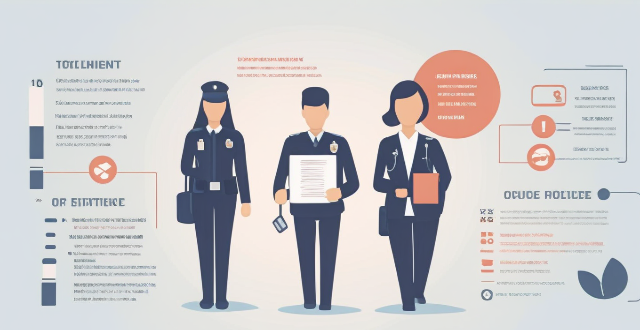
What policies can low-income countries implement to promote gender equality and women's empowerment ?
This article discusses various policies that low-income countries can implement to promote gender equality and women's empowerment. It highlights the importance of education, healthcare, economic development, legal protections, and cultural norms in achieving these goals. The article suggests policies such as equal access to quality education, vocational training programs, reproductive health services, microfinance programs, non-discriminatory hiring practices, protection from violence, property rights, positive media representation, and community mobilization. By implementing these policies, low-income countries can create a more inclusive and equitable world for all genders.

How does the tax bracket affect my personal income tax calculation ?
Tax brackets define the range of income subject to specific tax rates, embodying the principle of progressive taxation. Your income level determines the applicable tax bracket(s), which influences how much personal income tax you must pay. The marginal tax rate represents the highest rate on additional income, while the effective tax rate is the average rate across your total income. Being aware of your tax bracket can guide financial planning and strategies to possibly lower your taxable income.
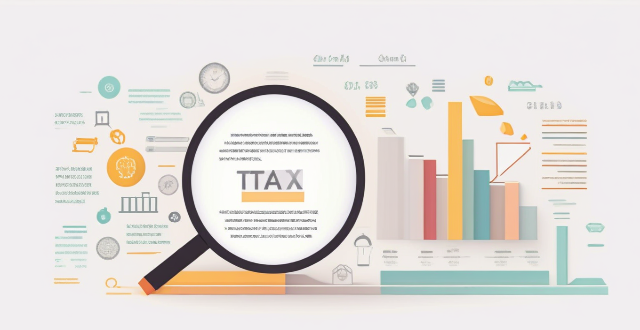
What are the tax benefits of investing in certain financial products ?
This article discusses the tax benefits of investing in certain financial products such as retirement accounts, stocks, bonds, and real estate investments. It explains how these investments can help reduce taxable income and save money on taxes, while also growing wealth over time. The article provides an overview of the different types of retirement accounts and their tax benefits, as well as the advantages of investing in stocks and bonds, including capital gains taxes, dividend income, and interest income. It also covers the tax benefits of real estate investments, such as depreciation, tax credits, and rental income deductions. The article emphasizes the importance of understanding the tax implications of each investment option and working with a qualified financial advisor to develop a strategy that meets individual goals and minimizes tax liability.

What happens if I make a mistake in my personal income tax calculation ?
Mistakes in personal income tax calculation can lead to underpayment or overpayment of taxes, errors in reporting income or deductions, and potential penalties, interest charges, or even criminal charges. To avoid these consequences, it's essential to stay organized, use tax software or consult a professional, review your return carefully, and file on time.

How does self-employment affect my personal income tax calculation ?
Self-employment affects personal income tax calculation by requiring net income reporting, quarterly estimated tax payments, utilizing deductions and credits, filing specialized forms, and paying self-employment tax. Staying organized and informed about tax laws is crucial for effective tax management.

How do low-income countries tackle poverty and improve the living standards of their population ?
Tackling poverty in low-income countries requires a multifaceted approach that addresses various aspects of development. Some key strategies include investing in education, promoting economic growth through foreign investment and local industry development, addressing healthcare needs by providing access to primary care services and training healthcare workers, and empowering women and girls through education, gender equality initiatives, and support for women-led businesses. By adopting these approaches, low-income countries can work towards improving the living standards of their populations and breaking the cycle of poverty.

Are there any online tools available for calculating personal income tax ?
The text provides a summary of online tools available for calculating personal income tax. It mentions TurboTax, H&R Block, IRS Free File, and TaxAct as popular options. These tools help individuals determine their tax liability based on their income, deductions, and other factors. However, it is important to consult with a qualified tax professional if there are any questions or concerns about the tax situation.
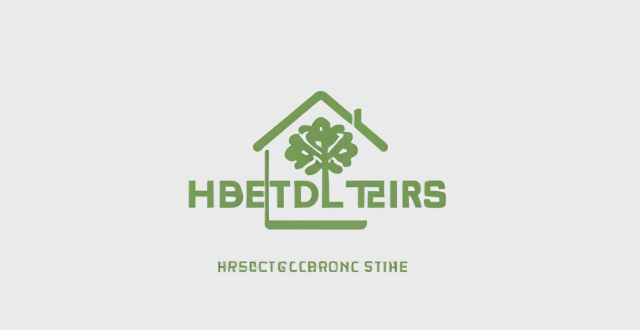
What is the impact of a carbon tax on low-income households ?
The text discusses the impact of a carbon tax on low-income households, emphasizing that such a tax can significantly and negatively affect these households due to increased costs and its regressive nature. However, potential long-term benefits are also highlighted, including revenue generation for energy-efficient programs and overall cost reduction as carbon-based fuel use decreases. To mitigate negative impacts, strategies like revenue recycling, progressive tax design, and energy efficiency programs are suggested. The text concludes that with careful policy design and implementation, a carbon tax can contribute to a sustainable future while benefiting all income levels over time.
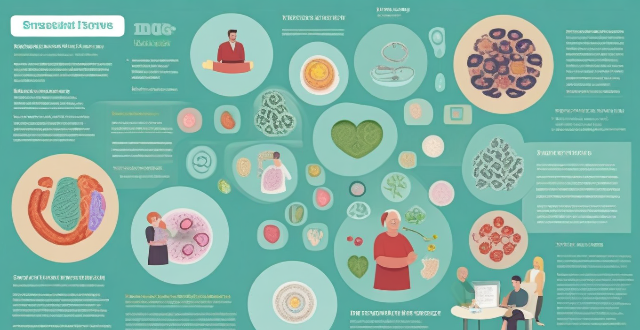
How can we strengthen the capacity of healthcare systems in low-income countries to address global health threats ?
This article discusses strategies to improve healthcare systems in low-income countries to tackle global health threats. It covers infrastructure development, human resource development, technology and innovation, partnerships and collaboration, preventive care and public health initiatives, financing and sustainability, and research and development. The article emphasizes the need for a multifaceted approach involving various stakeholders to achieve equitable healthcare for all.
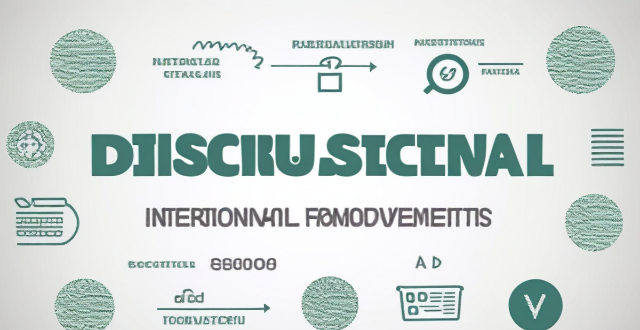
What role do international aid and foreign investments play in the economic growth of low-income countries ?
The text discusses the crucial role of international aid and foreign investments in promoting economic growth in low-income countries. It highlights how these two factors contribute to development by providing financial resources, technical expertise, and market access. The text also emphasizes the need for effective and transparent use of these resources to maximize their impact on sustainable economic growth.

How can we ensure that climate policies are fair and just for all people, regardless of income or social status ?
Climate change is a global issue that affects everyone, regardless of income or social status. However, the impacts of climate change often disproportionately affect low-income and marginalized communities. Therefore, it is essential to ensure that climate policies are fair and just for all people. Here are some ways to achieve this: 1. Prioritize vulnerable communities by identifying them, developing targeted policies, and ensuring equitable distribution of benefits. 2. Promote participatory decision-making by engaging stakeholders, providing access to information, and facilitating public participation. 3. Consider economic impacts by assessing implications, implementing transitional support, and promoting green jobs. 4. Address environmental justice by addressing historical inequities, promoting diversity and inclusion, and monitoring compliance with environmental laws. 5. Foster collaboration between government agencies by coordinating efforts, sharing resources, and evaluating progress regularly.
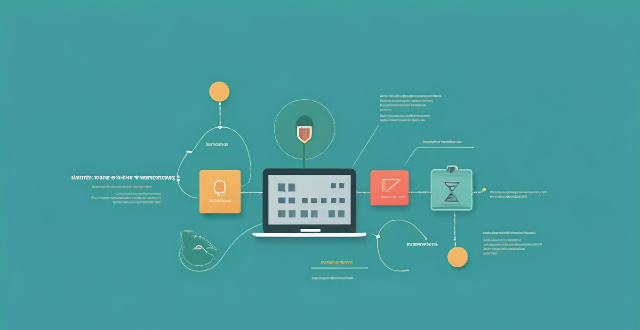
How can public transportation be made more affordable for low-income individuals and families ?
This article discusses strategies to make public transportation more affordable for low-income individuals and families, including discounted fares for senior citizens, students, and low-income households; integrated ticketing systems with multimodal tickets and time-based pricing; community partnerships with employers and nonprofit organizations; and government funding and subsidies from federal, local, and private sector sources. The conclusion emphasizes the importance of collaboration between policymakers, transit agencies, and community organizations in creating a comprehensive approach to improve access to essential services and opportunities for these populations.

How does gold investment compare to other types of investments ?
This article compares gold investment with other types of investments, such as stocks, bonds, real estate, commodities (other than gold), and cryptocurrencies. It highlights the advantages and disadvantages of each type of investment, emphasizing that the choice of where to invest depends on individual goals, risk tolerance, and market conditions. The article also suggests conducting thorough research and seeking professional advice before making any investment decisions.

Are there any tax implications for using credit card rewards ?
The article discusses the tax implications of using credit card rewards, which vary depending on the type of reward and how it is used. Cash back rewards are generally considered taxable income and must be reported on tax returns. Travel rewards, such as airline miles or hotel points, are not usually considered taxable unless converted to cash. Merchandise rewards are typically not taxable until sold or exchanged for cash, but if the fair market value exceeds the purchase price, the difference may be considered taxable income. Charitable donations made with rewards may be deductible from taxable income, but it is important to consult with a tax professional to ensure compliance with tax laws.

What are the main challenges faced by low-income countries in achieving sustainable development ?
Low-income countries face numerous challenges in achieving sustainable development, including poverty reduction, environmental protection, social inclusion, and institutional capacity. Addressing these challenges requires a comprehensive approach that involves collaboration between governments, civil society organizations, and international partners.
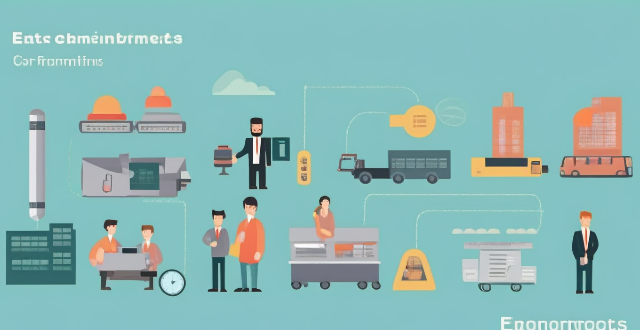
Can carbon credits be a sustainable source of income for developing countries ?
The article explores the potential of carbon credits as a sustainable source of income for developing countries, highlighting their benefits in revenue generation, sustainable development, and international cooperation. However, it also underscores the challenges such as market volatility, implementation complexities, and ensuring environmental integrity. The conclusion emphasizes that with robust frameworks and transparent monitoring, carbon credits can be a cornerstone of sustainable development strategies for developing countries.

How much money do I need to achieve financial freedom ?
Financial freedom is a subjective term that varies from person to person. It generally means having enough income-producing assets to cover your expenses without relying on a job. The amount of money needed to achieve financial freedom depends on several factors, including lifestyle, location, and future goals. To determine your financial freedom number, consider factors such as lifestyle expenses, future goals, emergency funds, and retirement planning. Strategies to achieve financial freedom include building passive income streams, investing wisely, living below your means, and creating a plan and sticking to it. By following these strategies, you can reach your financial goals faster and achieve financial freedom over time.

How do low-income countries manage their debt and avoid falling into a debt trap ?
文章讨论了低收入国家在管理债务方面面临的挑战,并提出了避免陷入债务陷阱的策略。这些策略包括:将债务管理作为经济政策的重点;多元化融资来源;与债权人协商优惠条件;建设机构能力;促进经济增长和发展。通过实施这些策略,低收入国家可以有效管理债务,实现可持续经济发展。

What strategies can low-income countries adopt to attract more tourists and boost their tourism industry ?
Low-income countries face challenges in attracting tourists due to limited infrastructure and resources, but can boost their tourism industry by developing infrastructure, promoting local culture, offering affordable packages, focusing on sustainable tourism, partnering with agencies, and improving safety.
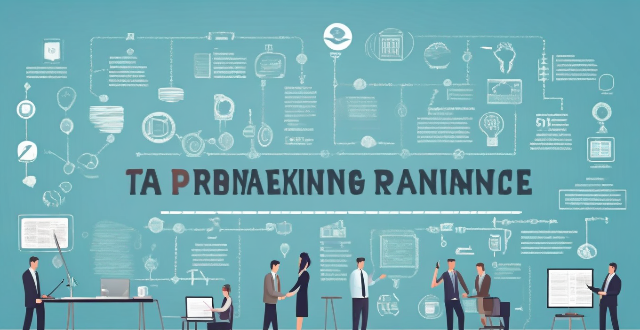
How does tax planning differ for various types of businesses (e.g., LLC, S-Corp, C-Corp) ?
This article provides a summary of the tax planning differences for various business types, including Limited Liability Companies (LLCs), S Corporations, C Corporations, Sole Proprietorships, and Partnerships. For each type, it outlines the tax treatment, such as pass-through taxation for LLCs and S Corporations, double taxation for C Corporations, and self-employment taxes for Sole Proprietorships. It also offers tax planning tips specific to each business structure, such as utilizing the Qualified Business Income Deduction for pass-through entities or retaining earnings within a C Corporation to fund growth. The article emphasizes the importance of consulting with a tax professional to ensure compliance with tax laws and optimize tax strategies based on the specific business structure.
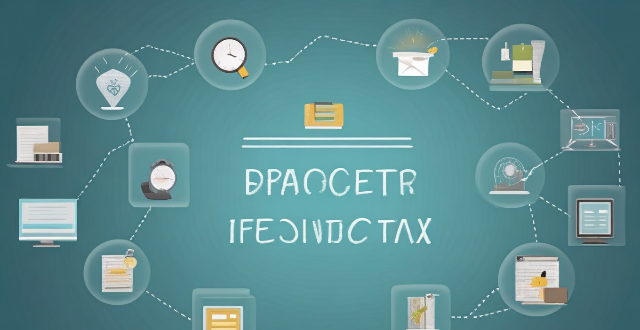
How does a carbon tax impact low-income households ?
The text discusses the impact of a carbon tax on low-income households, highlighting potential challenges such as increased cost of living and job losses, but also mentions mitigating factors like rebates and green job creation.

How does climate change disproportionately affect children from low-income or marginalized communities, and what can be done to address this inequality ?
Climate change disproportionately impacts children from low-income or marginalized communities, affecting their health, food security, housing stability, and education. To address this inequality, actions such as investing in renewable energy, improving public health infrastructure, providing financial support for displaced families, encouraging sustainable agriculture practices, and promoting environmental education are necessary.